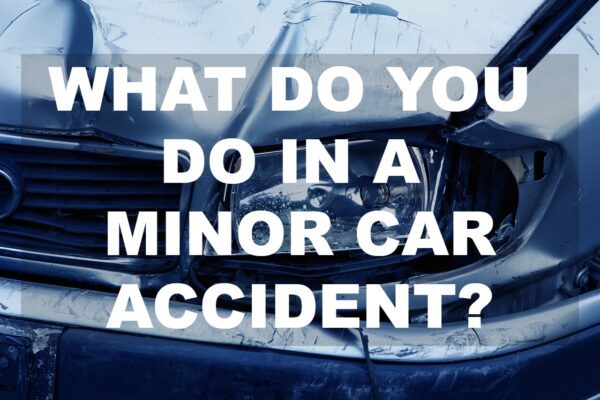
Minor car accidents can happen anywhere at any time, causing stress, aggravation, and much inconvenience. It may only be a fender-bender, but do you know what to do after a car accident? It’s important. Knowing what to do can help you to protect yourself financially. Minor accidents are generally fender-bender-like collisions. Where no one is injured but vehicles are damaged. With minor car accidents, insurance companies seek to settle claims quickly and rarely file lawsuits. However, know that if there is resistance to resolve or settle an insurance claim, you should consult an auto accident attorney to advocate on your behalf. If you are ever in a minor car accident, here are a few tips to follow to ensure you are protected:
What to Do After a Car Accident
Assess the Situation
There is no doubt that the impact of a minor car accident will leave you momentarily stunned. Your heart may race, and then frustration and anger may follow. But if it’s minor, most likely no one is hurt. Once that has been determined, amidst the realization, you have been in an accident, and that there is an actual situation to be dealt with immediately, no matter how annoyed you may be, staying calm and taking control of the situation will be to your benefit in the long run.
Taking control of the situation means keeping your cool. Avoid abusive language, insults, or any threatening behavior. You are only escalating an already bad situation. If the other driver acts aggressively toward you, stay in your car, roll the windows up, and start recording video with your cell phone until the police arrive.
Unless the collision has happened in a parking lot or a quiet neighborhood street, safety should be your first concern. Get your vehicle out of the traffic lane and move it to the breakdown lane. Once there, put on your emergency flashers and look for the vehicle that hit you. Note the color, make, and model, and if possible, the license plate number too, just in case the other driver continues on.
File a Police Report
Next, call 911 to report the accident and give the dispatcher your location. In Maine, the police must be notified if an accident occurs on a public road and property damage is at least $1,000. Every driver of each vehicle involved in the accident must file the report. Accident reports will aid in an insurance claim. Even with a minor collision and no injuries, call the police. Do not let the other driver or passengers talk you out of it or not to involve the insurance company. Calling in to report an accident establishes a record of the accident in the event that the police cannot respond immediately.
Collect Evidence
Whether the police arrive on the scene or not, exchange insurance and contact information with the other driver. You should exchange full names, contact information, license numbers, and the insurance company information.
Vehicle information should also be written down—the car’s color, make, model, and year, along with the car’s license plate number, and description of any visible damage. Use your cell phone to take pictures of the accident scene and point of impact.
Look for eye-witnesses and get their contact information. In Maine, if you witness a car accident, you are obligated not to leave the scene of an accident.
If the fender-bender occurs in a shopping center or mall parking lot, have the complex’s security guard on scene write up an incident report. The incident report will establish the time, date and location of the accident for any insurance claim.
Medical Care
Though minor accidents rarely result in any serious injury, reaction to an injury may not be immediate or obvious. Therefore, if medical care is offered do not refuse. Your shock or frustration from the accident may be distracting you from a serious injury. Never tell anyone your condition either, such as stating, “I’m okay” or “Everything is fine.” It may not be.
Though a hospital visit from the scene may not be in order, you should still have your doctor evaluate you as soon as possible, the same day if possible. If your doctor cannot see you, consider going to the nearest urgent care center or emergency room. Whiplash, nerve damage, and some brain injuries may not become apparent for hours or even days after an accident. Also, refusing medical treatment after an accident can result in your claim being denied. You’ll be giving the insurance company a reason to argue your injuries weren’t caused by the crash.
Should I Get an Attorney After a Car Accident?
Knowing what to do after a car accident can save you money and time, and also rid yourself of future aggravation. Get your bearings, stay calm, and take control of the situation. Remember, in Maine, the law follows the traditional “fault” system when it comes to car accidents and insurance claims. That person who is at fault for the accident is the person who is financially responsible for damages and injuries. If you have any questions you should consult with a Maine auto accident attorney.

